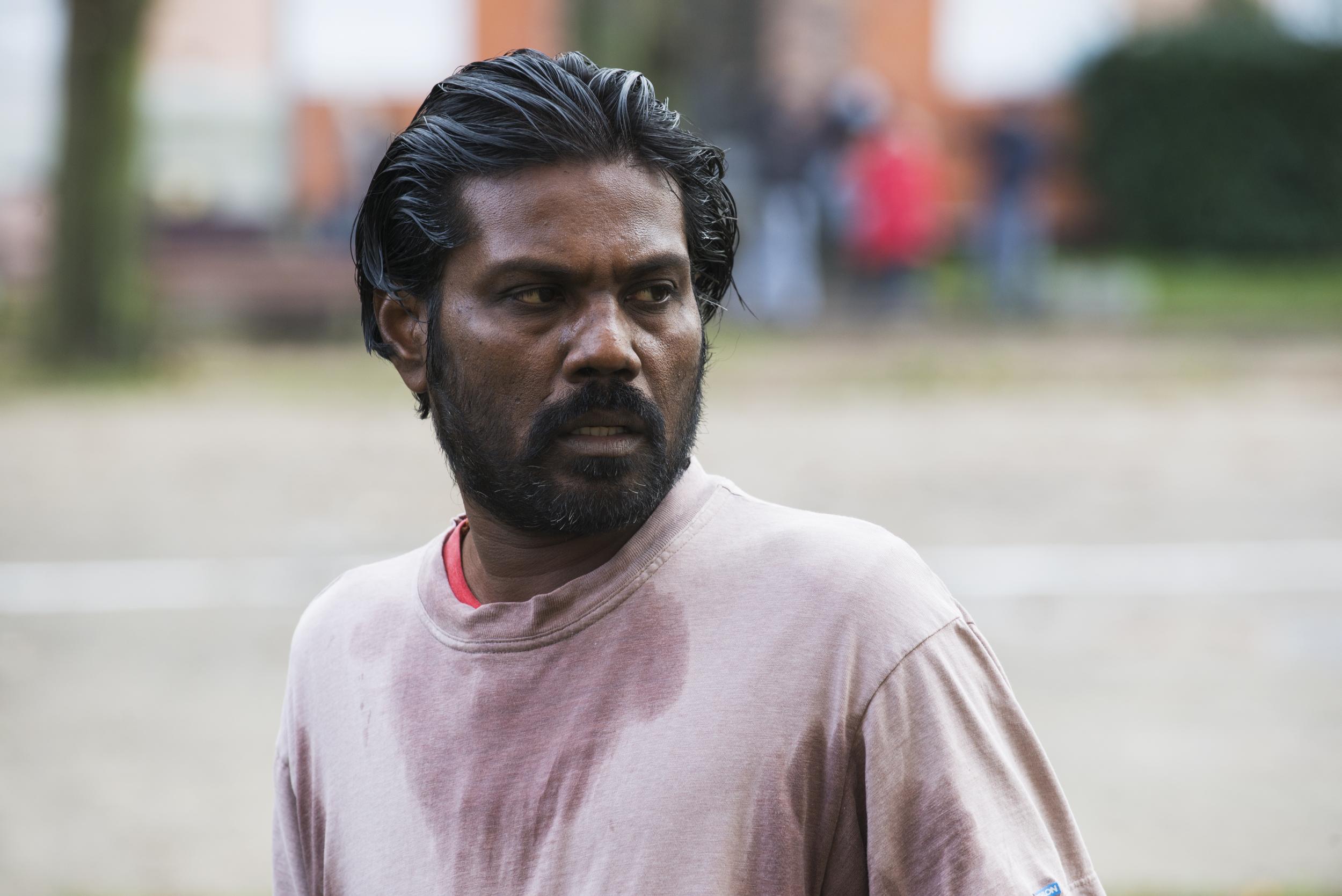Dheepan: the Parisian banlieue on film and the bonds of isolation
How Jacques Audiard's Palme d'Or-winning latest fits into French cinema's history of depicting the suburbs of its capital city

In his work, Jacques Audiard seeks to create icons of cinema out of those society cruelly attempts to disregard as unworthy of our time, unworthy of our gaze. In A Prophet, he turns a French youth of Algerian descent into an assassin of the gangster genre; in Rust and Bone, Marion Cotillard plays the great romantic heroine, wheelchair-bound after a double amputation.
His latest, the Palme d'Or winner Dheepan, reveals an entire community disregarded; the Parisian banlieue. These suburban low-income housing projects are unique in a way that, in their geographical distance from the city, their sense of social isolation takes on a bleak physicality; Paris becomes the glimmering dream always just out of reach.
Yet, as Audiard depicts in his tale of Tamil refugees fleeing civil war in Sri Lanka, the banlieue's insularity acts like its own kingdom; self-ruling, there's no police to be seen in Dheepan's housing estate, and its protagonist soon learns this new world he's entered lives by its own rules and conflicts.
Though Paris once pulsated with industry, with labourers and craftsmen; under Napoléon III, the working class began to be thrown aside for the construction of the city's boulevards. In 1871, the Commune revolt only further accelerated this alienation from urban areas, as the ruling class sought to push them further and further away; starting with the Communist-dominated "Red Belt" and then onwards into the surrounding countryside.
During the de Gaulle era of the '50s and '60s, "mushroom cities" were created, packed with low-incoming housing estates as a means to house French settlers who had left Algeria during the Algerian War of Independence; a systematic placement which left them essentially segregated from the core of French society.
It's this sense of isolation which has become such a core part of the Parisian banlieue's evocation on screen; though towering above it all, stands Mathieu Kassovitz's bristling 1995 film La Haine/ Hate. Like a brand to French cinema, it demanded all eyes turned to the place so many were taught to forget; a film significant enough in its social realism for Alain Juppé, who was France's Prime Minister at the time, to commission a special screening of it for which his minsters were required to attend.
Kassovitz was not the first to bring the banlieue to screen in so raw a form; Jean Luc Godard's radical 1967 film Deux ou trois choses que je sais d'elle/ Two or Three Things I Know About Her witnessed the early dream of the high-rises of the banlieue, supposedly built as a luxurious homestead for working families. Yet, like J.G. Ballard's High-Rise (and Ben Wheatley's recent adaptation), all Godard saw behind those abrasive concerete walls was the ravaging decay of consumerism.
Kassovitz's film didn't appear in isolation, with Malik Chibane's Hexagone in 1994, and Thomas Gilou's 1995 work Raï; yet there was something different about this work. A drive which surpasses what came before, the raw quality of pulsating blood and a quivering heartbeat. Kassovitz started work on the screenplay the day of Makome M'Bowole's death on 6 April, 1993; shot while in police custody, though officially labelled as an accidental death.
Another drive behind Kassovitz's words: the death of Malik Oussekinem, a 22-year-old student protestor who was fatally beaten by riot police in 1986 after a mass demonstration he didn't even take part in. He is referenced in the opening montage of the film, which sets up the aftermath of a riot which drives a fevered 19 hours in the lives of three young men.

Watch Apple TV+ free for 7 days
New subscribers only. £8.99/mo. after free trial. Plan auto-renews until cancelled

Watch Apple TV+ free for 7 days
New subscribers only. £8.99/mo. after free trial. Plan auto-renews until cancelled
La Haine depicts fury; the vengeful rage that fills the soul and body of Vinz (Vincent Cassel), the young Jewish man determined to avenge the death of youth at the hands of the police during the riots; an eye for an eye, he seeks to become a cop-killer. His is the ultimate portrait of where the hopeless and powerless are driven to, where the isolation of the banlieue drives lines as deep as the trenches of warfare.
Yet, Kassovitz's film reminds also that there is brotherhood to be found amongst the detached; as Vinz's friendship with the Arabic Saïd (Saïd Taghmaoui) and the Afro-French Hubert (Hubert Kaoundé) sees them bound together by that mutual sense of social isolation. Though La Haine's portrait of the banlieue's spiralling descent into chaos (which in turn seemed to predict the 2005 riots) seems utterly bleak, there is a hope that humanity can be found within there.
Dheepan reveals its own descent into darkness, but also a message of overcoming isolation through commonality; as echoed in the blossoming relationships between its Tamil refugees, roughly thrown together as a fake family in order to seek political asylum in France.
There's a similar bond to be found in Céline Sciamma’s Bande de Filles/Girlhood, released last year; which intermixes the coming-of-age movie with a similar portrait of the isolating nature of the banlieue. It follows black French teenager Marieme (Karidja Touré), who falls in with the seduction of the girl gang lifestyle; all glamour, shoplifting, street fighting, but also that desired sense of place and purpose.
Dheepan hits UK cinemas 08 April.
Subscribe to Independent Premium to bookmark this article
Want to bookmark your favourite articles and stories to read or reference later? Start your Independent Premium subscription today.

Join our commenting forum
Join thought-provoking conversations, follow other Independent readers and see their replies